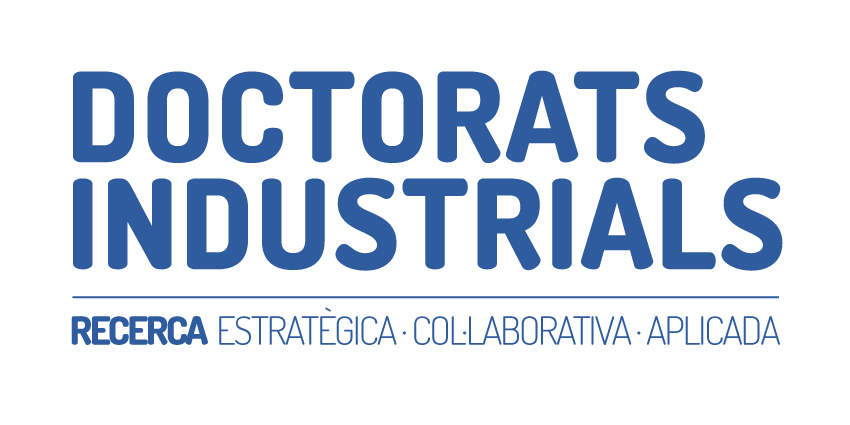The campuses develop projects with IBM, Indra, Agbar...
PAZ ÁLVAREZ MADRID 24-07-2015 21:37

The collaboration between the university and business exists, not in a generalized way, but ties have been strengthened. Although the economic crisis has caused the volume of contracts of universities with the company to be reduced, in recent years they have exceeded 500 million euros per year in research, compared to 700 million per year prior to the economic debacle, according to the vice-rector for research of the Polytechnic University of Madrid and president of the RedOTRI of the Conference of Rectors of Spanish Universities (CRUE), Roberto Prieto.
It also points out in this year's CYD report, prepared by the CYD Foundation, that most of the collaborations between university and business are carried out through direct R+D contracts commissioned, that is, the company turns to the university to carry out certain studies or research to solve specific problems such as polytechnic universities, or those with a high incidence of scientific-technical studies, which will cover the majority of contracts.
The so-called collaborative R+D, adds, in the aforementioned report, the rector of the University of Cantabria and president of R+D in the CRUE, José Carlos Gómez, responds to a joint investigation between the company and the university, generally with a greater temporal continuity is located at about 248 million euros, while services and technical support the figure exceeds 130 million euros.
One aspect that universities must work on, according to the CRUE experts, is to increase revenues from developed technologies. In the last five years, the figure has remained independent of the economic crisis, standing in the band of 2.2 million euros. This amount represents less than 0.5% of the research income of Spanish universities in collaboration with the company.
Another difficult chapter is the generation and licensing of patents in universities. Because, in most cases, when a company meets a research topic, it is usual that the exploitation of possible patents corresponds to the company and, therefore, it is the one that co-owns with the university generates the patent. For this reason, in many universities the offices or valuation bodies are appearing, or what is the same, an analysis of the possibility of transfer through an analysis of the possible value, which in the market may have a certain patent and the possibilities of commercialization.
The rector of the University of Cantabria, José Carlos Gómez, affirms that a forum for discussion and preparation of university-business projects has been set up, with more than 130 organizations where common work initiatives are emerging.
In this sense, it is worth highlighting some examples of university-business collaboration, such as the link between Watson, the computer system developed by IBM, with the Polytechnic University of Madrid (UPM). Because, according to Marta Martínez, president of IBM in Spain, it is not a product but the development of a paradigm in the way of thinking, addressing and developing new possibilities of new information technologies at the service of talent and creativity.
The technology multinational is working with the UPM, specifically with the School of Computer Engineers, which has an outstanding research group in data mining and intelligent systems. In particular, for four years, the group has specialized in the medical domain thanks to its collaboration with the Center for Biomedical Technology of the UPM, whose professors are responsible for teaching subjects related to databases, data analytics and big data. Another of the companies that collaborates intensely with universities is Agbar, which participates in the plan for industrial doctoral students of the Generalitat de Catalunya. Its objective is to contribute to the competitiveness and internationalization of the Catalan industrial fabric, while promoting the training of doctors and the recruitment of talent from Catalan universities. The Agbar group has projects in the Autonomous University of Barcelona, the University of Vic and the University of Girona. The research projects, in this case, are three years long and incorporate additional advantages for the doctoral student such as free tuition or a mobility grant.
The life cycle of a product
The life cycle of a product on the market is a chronological process that takes place from its initial conception to its disappearance. The first stages of this process are full of uncertainty, uncertainties and a lot of risk, which you can try to limit with the realization of tests with models or with prototypes. This work allows to check the degree of acceptance of a new product or service, its production possibilities, costs and performance to try to reduce failure rates and seek greater alignment with the market. In this field, the University of Castilla y León has been investigated, which has developed a system to control a wheelchair with head movements, a device to facilitate the reading of hospital ultrasound scanners, a platform capable of integrating all home automation systems in a single device or an application to automatically alert family members or emergency services of the fall of a Elder.
All of them have been prepared by students and researchers within the framework of the University-Business Knowledge Transfer Program, which has been a boost in the connection between the university and the company.
Smart Campus, in three bands
It is an initiative that arises from the collaboration of three institutions, the Princess of Girona Foundation, the Carlos III University of Madrid and Indra, committed to research, development and innovation, as well as entrepreneurship. The three have come together to promote the transversal knowledge and skills of the students of the aforementioned Madrid campus.
In this project, the students are protagonists, since the objective is that they contribute to the construction of the Carlos III Smart Campus 2020, where their needs and concerns are answered under the paradigm of the Internet of Things, using the technology of Indra Sofía 2.
Among the advantages that participation in this project brings to the students, is the identification of the needs and problems that they would like to be solved and that they themselves define and develop the solution. This encourages collaboration, ensures in the CYD report the promoters, and work in multidisciplinary teams where each member contributes their knowledge and area of specialization.
Likewise, learning is encouraged by doing, pillar of Smart Campus, through the realization of workshops on business models from the Indra platform.
Finally, the culture of participatory community is encouraged, where participants can give their opinions and value the ideas proposed by other colleagues.
The three institutions consider it an interesting initiative in which students from different degrees have participated, who have generated more than 50 initiatives that respond to different needs of the university ecosystem. In this way, students (of the millennial generation) noise and become more involved in activities when they learn to do, as in the case of Smart Campus.
From Indra's point of view, says David Pascual Portela, manager of institutional development of innovation, in the report of the Knowledge and Development Foundation, it is a new area of collaboration with the university that allows students to know and learn about the technologies and solutions of the company. For Carlos III, they explain, it brings a different experience and vision to students, and generates a sense of belonging that is increasingly important for the university.

